Back to Course List
Building: RCA: Electrical Principles # 2
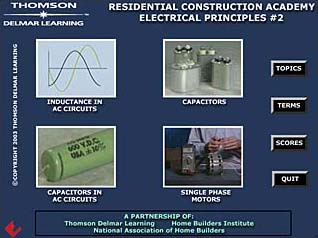
- Product ID
- dlmrrep2
- Training Time ?
- 92 to 184 minutes
- Language(s)
- English
- Video Format
- Standard Definition
- Required Plugins
- MasteryNet Player
- Lesson Interactions
- 14
- Quiz Questions
- 40
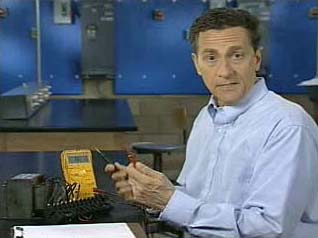
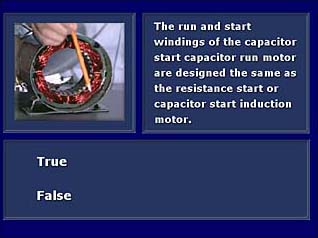
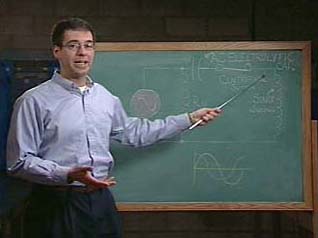
Overview
This training, the second in a two part series of Electrical Principles, continues educating the learner in electrical theory and its applications through an overview of important concepts, equations, and practical examples. Electrical Principles Part two explains AC circuitry, capacitors, and single phase motors.
![]() This course is in the Advantage™ format, to read about Advantage™ features click here.
This course is in the Advantage™ format, to read about Advantage™ features click here.
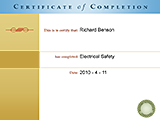
- Install on any SCORM LMS
- Rich multimedia presentation with interactions and quiz
- Print certificate and wallet card
- You have 30 days to complete the course
Workplaces
Audience
This training is intended for all persons who have recently entered or are considering entering the Electrical Wiring field within the Residential Construction Industry.
Topics
The course presents the following topical areas:
- Inductance in AC Circuits
- Capacitors
- Capacitors in AC Circuits
- Single Phase Motors
Intended Performance Outcomes
Upon successful completion of this course you will be better prepared to:
-
Understand inductance in AC circuits.
- Discuss inductance.
- Calculate inductive reactance.
- Calculate impedance.
- Discuss voltage and current relationships in an inductive circuit.
- Calculate inductance.
-
Understand capacitors.
- List factors that determine the capacitance of a capacitor.
- Discuss capacitor voltage ratings.
- Discuss differences between polarized and non-polarized capacitors.
- Determine charge time of a capacitor.
-
Understand capacitors in AC circuits.
- Discuss how current appears to flow through a capacitor.
- Calculate capacitive reactance.
- Determine values of reactance, current, and power in a pure capacitive circuit.
- Discuss voltage and current relationships in a pure capacitive circuit.
- Discuss voltage ratings of capacitors.
-
Understand single phase motors.
- Discuss the operation of a split phase motor.
- Explain why a capacitor start motor produces more starting torque
- Explain the operation of a centrifugal switch.
- Connect a single phase motor for high or low voltage operation.
- Discuss different types of starting relays.
© Mastery Technologies, Inc.



